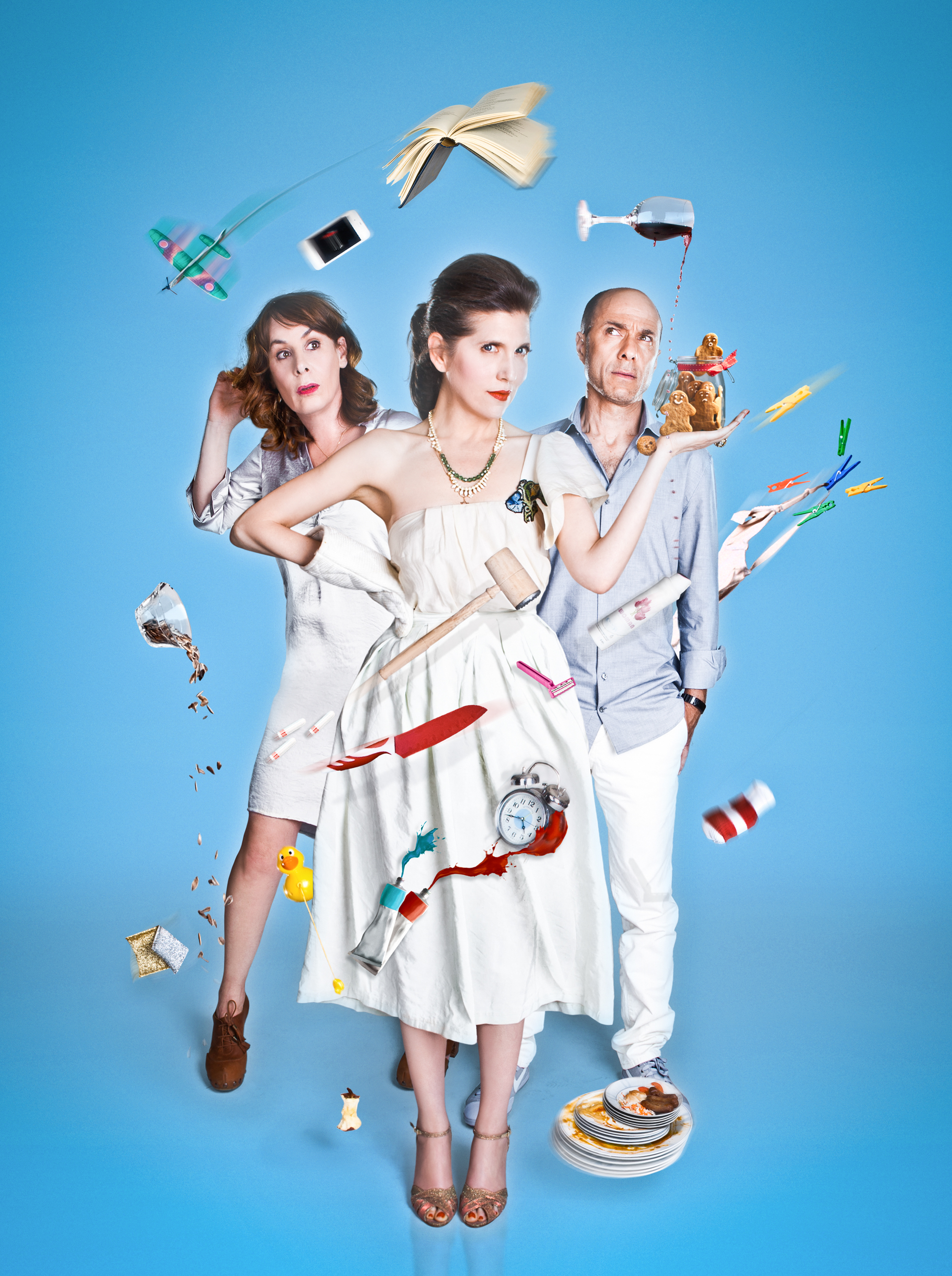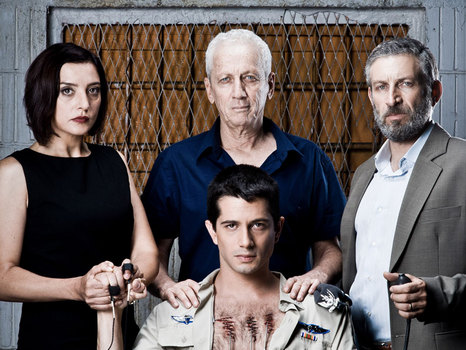
For 12 weeks I dated an Israeli. The majority of our relationship involved watching TV and smoking cigarettes on his couch. National Geographic was our favorite channel, since it was guaranteed to be in English. At first I felt guilty about staying indoors when I could hear Tel Aviv’s beaches a block away, but I soon realized I was able to intuit more about Israeli society from the thirty second Hebrew commercials in between snippets of Caesar Milan’s Dog Whisperer than any touristy night club. It’s now been seventeen months since I returned to the States and my reverse-culture shock has dissipated. Maybe that’s why I jumped at the chance to review three new Israeli shows. They promised to be good, after all, both In Treatment and Homeland were originally based on Israeli hits. Could these be next? For four hours I sat in the cushioned seats of San Francisco’s Jewish Community Center, ready to be immersed again.
The first to screen is Yom Haem (Mother’s Day), a sitcom about a successful comic artist, mother of three, and pathological liar named Ella. The show directly addresses some of Israel’s most controversial issues, deportations, burqas, and gay dating sites included. In one episode, Ella’s friend and jewelry designer is looking to hire a model for her next photo shoot. She specifically requests an African refugee, but is sorely disappointed when she is given an Ethiopian girl. It’s ironic. Israel has a substantial Ethiopian refugee population. All she has to do is go down to the Tel Aviv Central Bus Station to find a beautiful Ethiopian. Instead, she complains that she wants a darker, Sudanese girl. The brash, borderline racist humor of it all is enough to make any San Francisco native blanch. Let’s be real though; this is Israel. During my time there I heard Filipino caretakers referred to as “servants” and witnessed many a tan man stopped at a checkpoint for looking Arab. What Americans call “racial profiling,” Israelis call “fact of life.” We do the same thing on the streets of Oakland, but where Israel’s attitude is shameless, we’ve learned to act coy. As one woman next to me commented, “They’ll have to tone that down for American audiences.” Not to worry, the show is currently being adapted with Debra Messing.

Next is Gorodin Cell, a fast-paced drama about a family of retired Russian spies. The family had been comfortably living in Israel for years until a secret agent from the Kremlin showed up for their oldest son, Eyal, a sabra, and IDF hero completely unaware of his family’s seedy past. His parents are now forced to decide whether to turn themselves in to the Israeli intelligence agency Shin Bet or smuggle their son out of the country. The show flirts with a couple of Russian immigrant stereotypes in the process. While in Israel, I encountered some negative views of Russians as hyper-sexual criminals not to be trusted. I was told controversial stories of Russians pretending to be Jewish and moving to Israel for aliyah benefits. “Do you want to hear a joke?” an Israeli once asked me, “A Russian virgin.” The show touches upon some of the complexities of their experience. Regardless, the high-pressure landscape full of sleek handguns, aviator sunglasses, and one cornered smiles is seductive. Gorodin Cell is currently being remade into an American series called M.I.C.E. an acronym for Money, Ideology, Coercion, Ego.
The last show is Kathmandu, the story of a Chabadnik couple planning to begin their shlichut, or emissary period, in Brussels, when they are suddenly re-stationed in Nepal. The show presents a rarely seen positive portrayal of ultra-orthodox women. The new wife, Mushkie, obviously wears the pants in the relationship— so to speak, of course. It’s up to her to clean their new house, get her husband kosher food while he waits in jail for a crime he didn’t commit, and plan the first-ever Passover Seder in Kathmandu. In Nepal, the couple is ironically thrown in with their polar opposite in Israeli society: post-army kids with a penchant for weed, Eastern philosophy, and travel. They’re the next wave of tourists to hit Kathmandu and ready to party. In one scene, a group of tie-dye clad travelers are singing Hebrew songs while the other backpackers in the hostel shift uncomfortably.
“Please respect the silence,” the hostel owner comes in and asks.
The group laughs, pauses, then resumes singing. After a few minutes, the owner returns and repeats the request in Hebrew. Silence. The scene struck me as rather self-reflective and reminded me of a story I was once told on a date with an American. He was riding a train in Japan when a group of rambunctious Israelis suddenly boarded. After several minutes an older Japanese man quietly intervened with head bowed, “Please sirs, you are being very loud.” It’s quite rare for Japanese people to be so direct, he explained to me. They believe it’s rude. His story made me think of all the social cues my friends and I trespassed when traveling abroad, like telling a your-mama joke to a Jordanian.
When the theater lights flip on, the first thoughts that come to mind are formed in Hebrew. I’m back again, to an edgier place where you need to be bold or be told. Outside, the foggy, glossy streets of San Francisco are lined with tightly packaged bodies stuffing out the noise of the world with big headphones. It occurs to me that they’re hiding. Suddenly, I want to make eye contact with everyone I meet, to jostle them and boldly ask, “You awake?”
I don’t. This is San Francisco. They might call the cops.
Catie Damon is a recent graduate of UC Santa Cruz.
[fbshare type=”button”]
